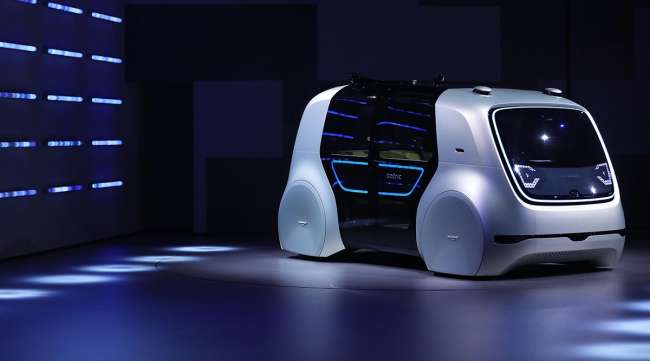City of Albuquerque Extends Opens Arms to Self-Driving Vehicles

Albuquerque, N.M. — Mayor Richard Berry on July 7 sent a strong message to companies developing and testing driverless technology that his city is opening its arms to them.
Berry issued an “executive instruction” directing the Department of Municipal Development, the city’s Legal Department and “all other agencies of the city” to promote self-driving vehicles in Albuquerque.
“It is in the city’s interest to support the development and advancement of this technology,” Berry told the Journal. “It makes sense from an economic development standpoint, from a public safety standpoint and from a job creation standpoint. It can provide new research opportunities to our universities, and it sends a strong signal that we are a forward-thinking community.”
Albuquerque is already home to a number of high-tech companies, Berry said. One of them, TriLumina, is working on semiconductor laser technologies for autonomous vehicles.
TriLumina CEO Brian Wong welcomed the mayor’s directive and said, “TriLumina could help create an ecosystem for autonomous driving technology in the area.”
He said high-tech companies tend to attract other high-tech companies, which are “looking to locate in an area where there is a supply chain and other types of high-tech employment opportunities.”
Berry also pointed to a study by INRIX that ranks Albuquerque second on the list of the top 10 cities primed for autonomous vehicle rollout. INRIX is a global company that provides real-time traffic information, connected car services and transportation analytics. It based Albuquerque’s ranking on local geography, traffic patterns and the presence of scientific research organizations. The No. 1-ranked city is New Orleans, and No. 10 is Tulsa, Okla.
“We need to embrace emerging technologies,” Berry said. “There’s no question that autonomous vehicle technology is moving much faster than people thought, and Albuquerque is poised to be on the forefront.”
As the name implies, driverless vehicles are designed to navigate between destinations without a human operator. Instead, they rely on technology that senses the surrounding environment and responds appropriately and automatically by speeding up, slowing down, changing lanes, turning or stopping.
Companies developing and/or testing driverless cars include Audi, BMW, Ford, Google, General Motors, Tesla, Uber, Volkswagen and Volvo. Google has a fleet of driverless cars that since 2009 has driven more than 3 million miles with just 14 accidents — all of which were determined to have been the fault of the driver of another vehicle.
Most future driverless cars are expected to be powered by electric motors or be hybrids with small internal combustion backup engines. Proponents predict the technology will greatly reduce greenhouse gases, congestion, traffic accidents and insurance costs associated with property damage, injuries, death and loss of income.
However, not everyone is enamored of the idea of driverless vehicles. The Upstate Transportation Association in New York fears that self-driving cars will eliminate thousands of jobs and damage the local economy.
And an unclassified FBI report expresses concern that driverless vehicles could be used by terrorists as self-driving bombs, or used as getaway cars, allowing greater flexibility for those being pursued to shoot at their pursuers.
The global public relations firm Ketchum found in a recent survey that the incoming generation of car buyers actually prefers to manually operate a vehicle rather than have driverless technology take over. They expressed concerns about safety, viruses, hacks and mechanical or electronic malfunctions.
The Washington, D.C.-based Cato Institute acknowledged the many benefits of driverless vehicles, but on the downside said the technology would likely contribute to urban sprawl.




